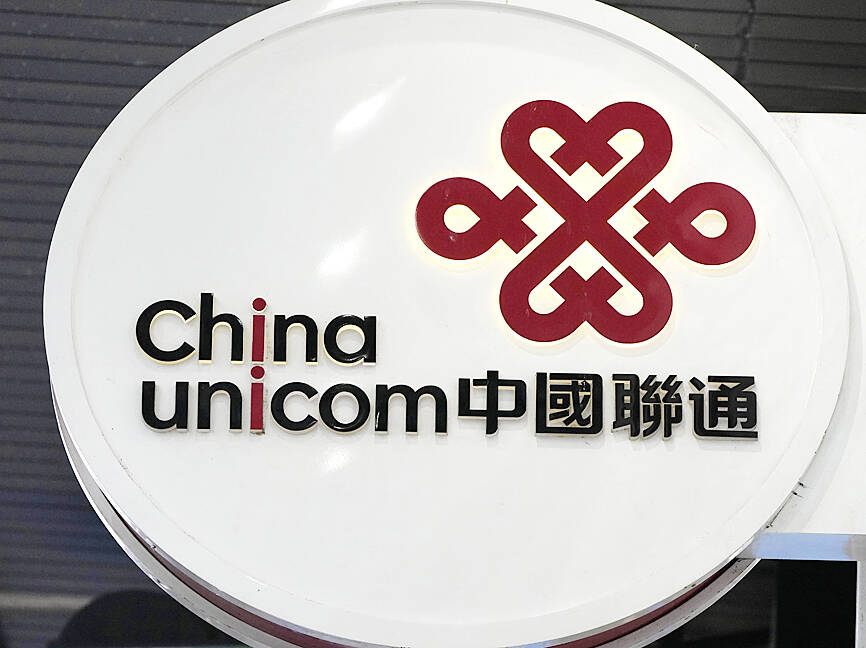Starting from this month, Taiwan’s telecoms must not allow data roaming for China Unicom Hong Kong’s prepaid card users if the SIM cards they use are not registered under real names, the National Communications Commission said yesterday.
Taiwan’s telecoms are required to follow the real-name system by asking telecom services applicants to present two photo IDs, the commission said.
However, some overseas telecoms sell prepaid cards to people traveling to Taiwan and do not require users to register SIM cards using their real names, it said.

Photo: AP
Such unregistered prepaid cards are also called “BlackBerry” cards and could be exploited by scammers, it said.
Criminal Investigation Bureau data showed that a majority of scammers use China Unicom Hong Kong’s prepaid cards, the commission said.
“We are asking Taiwan’s telecoms to not offer data roaming services for China Unicom Hong Kong’s prepaid card users if their real names are not registered on SIM cards. Telecoms began implementing the policy on Wednesday last week,” it said.
Scammers prefer to use telecom services in Hong Kong, Macau and Southeast Asian nations, as they are home to many Taiwanese businesspeople, it said.
Stopping data roaming services would prevent scammers from engaging in money laundering through Web banks and increase the cost of committing fraud, the commission said.
Scammers using Wi-Fi would make it even easier for the police to trace their online activities, the commission said.
China Unicom Hong Kong’s users can still use prepaid cards to make calls and send text messages, while data roaming services would be reactivated if their names are registered on the SIM cards, the commission said.
All five major telecoms in Taiwan have signed international roaming agreements with their counterparts in other countries, and the agreements allow two-way roaming services to be suspended if criminal activity is suspected, the commission said.
“In addition to Hong Kong, we are asking telecoms to consider re-examining their roaming agreements within countries in Southeast Asia. The goal is to block the data transmitted through unregistered SIM cards,” it said.

The Ministry of Economic Affairs has fined Taobao NT$1.2 million (US$36,912) for advertisements that exceed its approved business scope, requiring the Chinese e-commerce platform to make corrections in the first half of this year or its license may be revoked. Lawmakers have called for stricter enforcement of Chinese e-commerce platforms and measures to prevent China from laundering its goods through Taiwan in response to US President Donald Trump’s heavy tariffs on China. The Legislative Yuan’s Finance Committee met today to discuss policies to prevent China from dumping goods in Taiwan, inviting government agencies to report. Democratic Progressive Party Legislator Kuo Kuo-wen (郭國文) said

The Ministry of Economic Affairs has fined Taobao NT$1.2 million (US$36,900) for advertisements that exceeded its approved business scope and ordered the Chinese e-commerce platform to make corrections in the first half of this year or its license would be revoked. Lawmakers have called for stricter supervision of Chinese e-commerce platforms and more stringent measures to prevent China from laundering its goods through Taiwan as US President Donald Trump’s administration cracks down on origin laundering. The legislature’s Finance Committee yesterday met to discuss policies to prevent China from dumping goods in Taiwan, inviting government agencies to report on the matter. Democratic Progressive Party

Taiwan and its Pacific ally Tuvalu on Tuesday signed two accords aimed at facilitating bilateral cooperation on labor affairs, according to Taiwan’s Ministry of Foreign Affairs (MOFA). The governments inked two agreements in Taipei, witnessed by Foreign Minister Lin Chia-lung (林佳龍) and visiting Deputy Tuvaluan Prime Minister Panapasi Nelesone, MOFA said in a news release. According to MOFA, the agreements will facilitate cooperation on labor issues and allow the two sides to mutually recognize seafarers’ certificates and related training. Taiwan would also continue to collaborate with Tuvalu across various fields to promote economic prosperity as well as the well-being of their

Sung Chien-liang (宋建樑), who led efforts to recall Democratic Progressive Party (DPP) Legislator Lee Kun-cheng (李坤城), was released on bail of NT$80,000 today amid outcry over his decision to wear a Nazi armband to questioning the night before. Sung arrived at the New Taipei District Prosecutors’ Office for questioning in a recall petition forgery case last night wearing a red armband bearing a swastika, carrying a copy of Adolf Hitler’s Mein Kampf and giving a Nazi salute. Sung left the building at 1:15am without the armband and covering the book with his coat. Lee said today that this is a serious